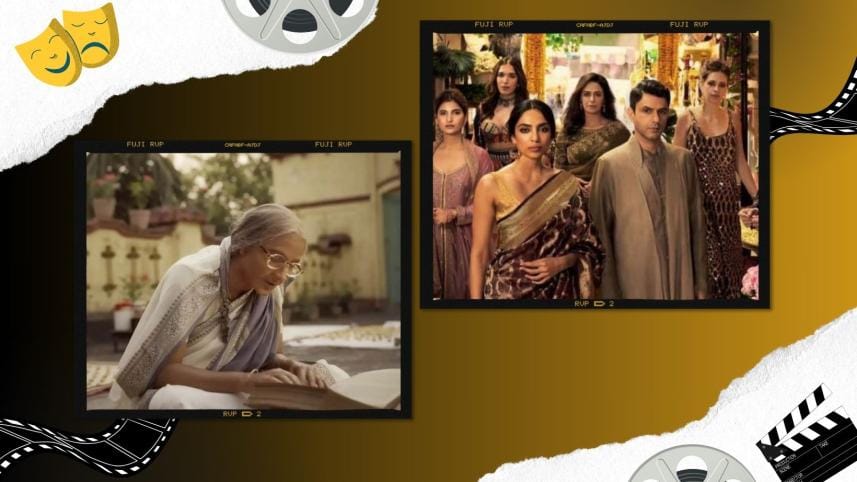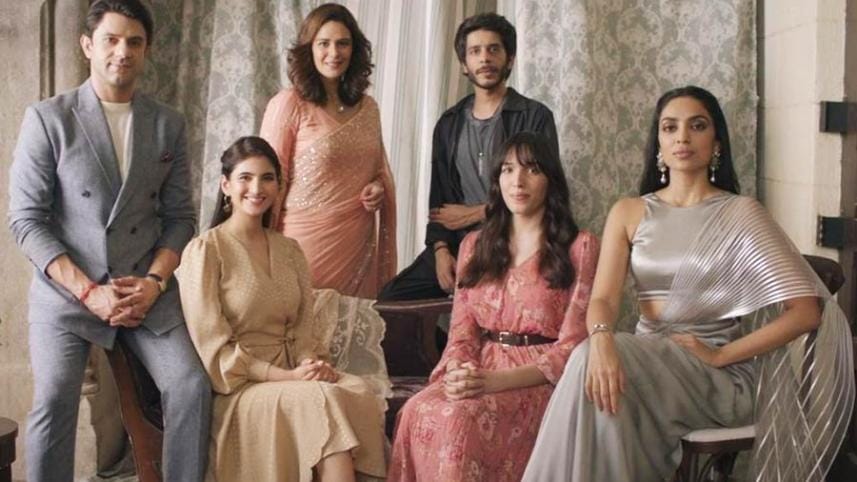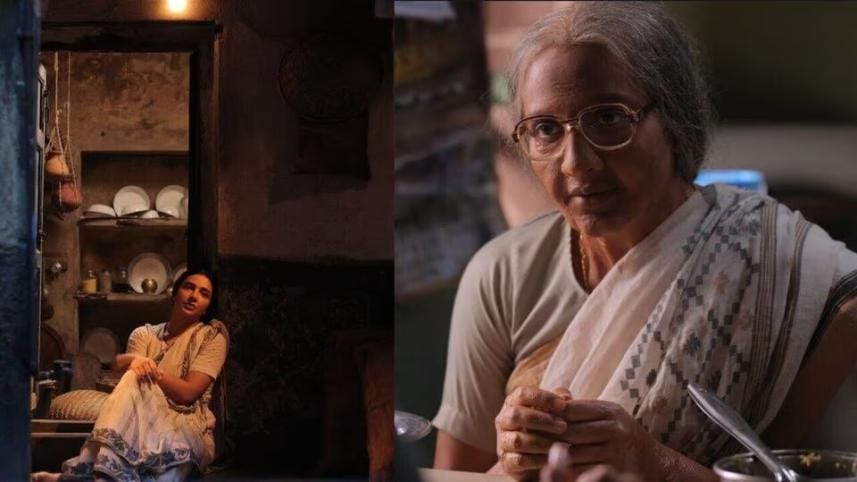Weddings, women, and the weight of choices

Zoya Akhtar's "Made in Heaven" season 2 dropped this August on Prime Video and immediately took over the internet. Reviews were barging in from all directions; While the series garnered praise from many, it also drew critiques. For most viewers, it was an opportunity to revisit the beloved first season, which had earned widespread admiration.
"Made in Heaven" revolves around an event management company specialising in wedding ceremonies. The central characters, Tara and Karan, portrayed by Sobhita Dhulipala and Arjun Mathur, respectively, navigate a spectrum of experiences while orchestrating these weddings.

In the context of the first season, two weddings, in particular, keep recurring in our popular discourse and collective consciousness. The first one initially seemed like a fairy tale—a vivacious bride marrying a diligent administrative officer, with supportive families on both sides. Everything felt joyous and lovely, but only up until the day of the wedding.
The wedding day revealed a shocking demand for dowry from the groom's family. In a courageous act, right at the mandap, the bride decides to walk away. And as the narrator duly said, it took one tiny moment of courage to shatter centuries of patriarchy. But as the viewers experience the moment, one question lingers– would we all have that same moment of courage?

The second wedding, set in Ludhiana, was rather an unusual one. It began with a contest. From catwalks to interviews, what initially appeared as a beauty pageant was, in fact, the competition for qualifying for qualifying the criteria of being a bride of an NRI. After all the hurdles, the winner-turned-bride soon discovers her husband's impotence and ironically, the groom keeps blaming her.
However, she does not annul the marriage or seek a fresh start. instead, For her, everything about the contest, the marriage and the compromise meant the only ticket to a better life. Her surroundings and environment had crushed her spirits to an extent that she felt the sole way to a good life was getting married to an immigrant. This poignant on-screen portrayal underscores the stark realities of many marriages in this region—a far cry from silent suffering.
And with all these weddings going on, we also witnessed Tara's marriage and wonder how much truth that actually contained. It starts with a cunning plot by Tara and perpetuates by lies from her husband. It explores how external pressures, coupled with ethos of wealth and class, erode individual identity.
Tara's decision might have been her own. But the theme echoes the experiences of countless women for whom marriage is the biggest reason behind migration. One might ponder over the role marriage plays in displacing an individual, both externally and internally.

The series "Indubala Bhaater Hotel" on Hoichoi resonates deeply with audiences because it delves into these issues. Indubala's yearning to return to her homeland underscores a universal longing, regardless of borders. It doesn't matter that she had to cross borders to return, for almost everybody knows that the bindings imposed through marriage are perhaps stronger than those by borders.
Indubala did have feelings for someone back in her village, but she couldn't imagine getting married to him. As their families wouldn't accept the bond, this meant their preferences didn't matter at all. And maybe here's why marriages, in our country, and in fact globally, do not infer unions of souls, but rather a practical purpose to establish a social organisation. But in arrangements like this, how happy are our girls? If not their families, then who would protect their power to dictate their lives? What price do women pay for forsaking love?

Silently tolerating domestic violence and cheating, Indubala keeps struggling in her marriage. She doesn't fight for her dignity, she doesn't desire to break free. Indubala's silent endurance of domestic violence and infidelity, despite her courage and talent, strikes a chord with Bengali women who understand but rarely voice their experiences of curated helplessness through abuse and disrespect.

What constitutes willpower, and what breeds helplessness? Do seemingly powerful currencies be truly hollow and decapitating?
Ultimately, these narratives raise profound questions about willpower, helplessness, and the authenticity of power dynamics. They underscore the ongoing need for women's stories to be told on-screen, with no straightforward answers but a pressing demand for exploration.




 For all latest news, follow The Daily Star's Google News channel.
For all latest news, follow The Daily Star's Google News channel.
Comments